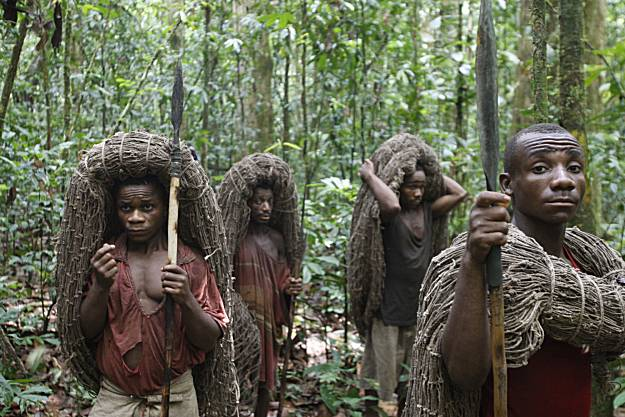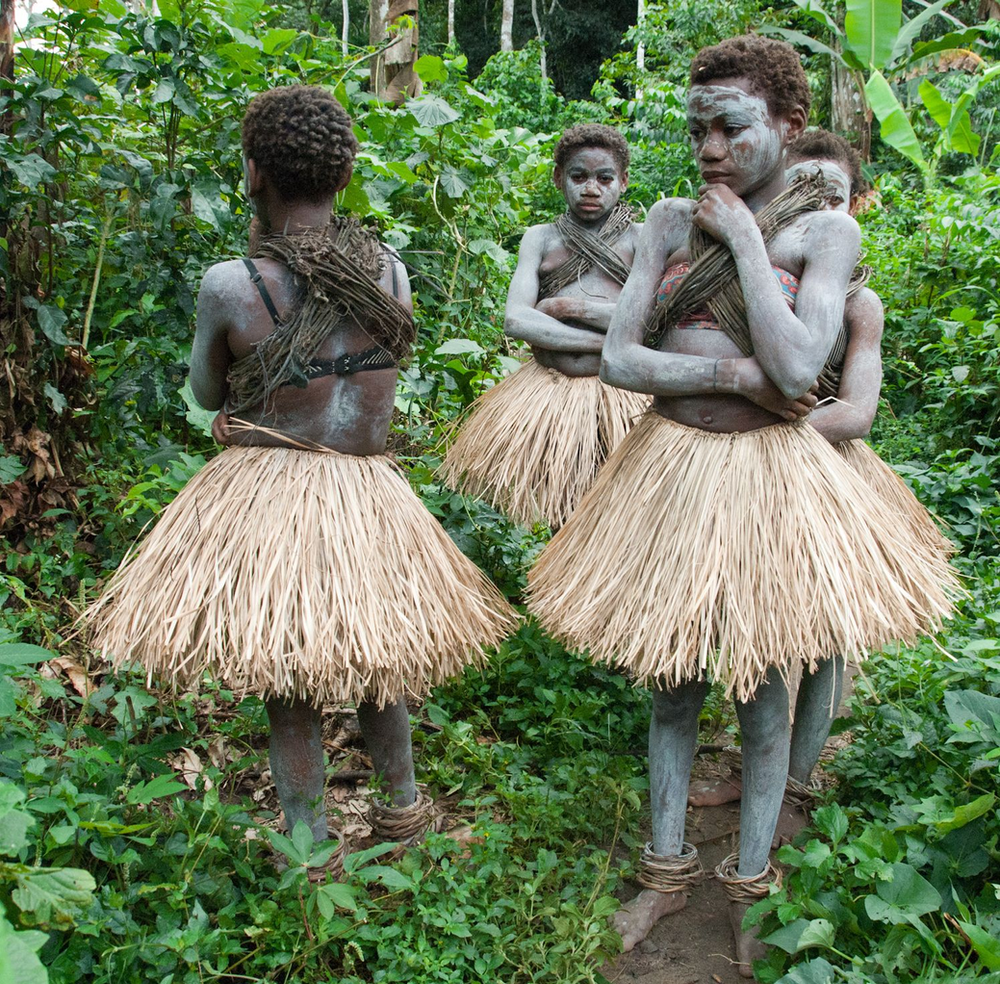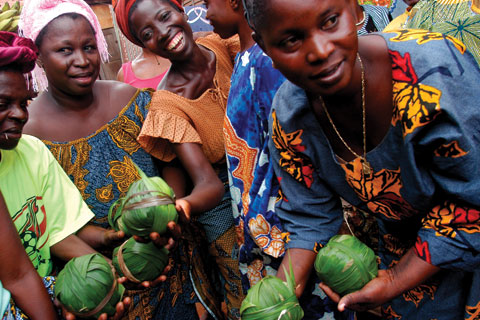In a global society where competition is the norm, mutual support is suppressed, and individualism is costly, an African philosophy comes to mind, Ubuntu. Ubuntu can be translated as “I am because we are,” it emphasizes the importance of community, and that is very much expressed in the Mbuti people. Communities and cooperatives are an antithesis to capitalistic individualism, and the Mbuti are an inspiration for such a necessity in our dog eat dog societies.

Mbuti pygmy men, from left, Faizi Malambi, Kawaya Situka, Besei, and Kange Ambali carry their hunting nets and spears as they await the start of the day’s hunt.
The Mbuti, also known as the children of the forest, are hunter-gatherers living in the Ituri Rainforest inside the Democratic Republic of the Congo. They have thrived without government for thousands of years, even since the peak of the Egyptian Empire, and continue to do so today as they are the logical conclusion to cooperative living.
There are thousands of Mbuti still residing in the Ituri Rainforest today and persist in their ways of life despite the changing world. Everything from resourcing food, traditional rituals to raising their youth, “…the Mbuti were resolutely egalitarian, and many of the ways they organized their society reduced competition and promoted cooperation between members,” says Western anthropologist, Colin Turnball
In promotion of cooperation between themselves, the Mbuti have traditionally embraced gender fluidity. Adults diminished gender roles by playing an important ritual game where “…the game began like a tug-of-war match, with the women pulling one end of a long rope or vine and the men pulling the other. But as soon as one side started to win, someone from that team would run to the other side, also symbolically changing their gender and becoming a member of the other group. By the end, the participants collapsed in a heap laughing, all having changed their genders multiple times. Neither side “won,” but that seemed to be the point. Group harmony was restored,” Turnbull added.
Mbuti aren’t without internal individual conflicts, but view conflict as a danger to their unity as opposed to it being “healthy competition”. The entire group holds an important nightlong ritual and discussion when the dispute goes unresolved, and if the dispute is still not resolved, Turnbull explains that, “…the youth, who often played the role of justice-seekers within their society, would sneak into the night and begin rampaging around the camp, blowing a horn that made a sound like an elephant, symbolizing how the problem threatened the existence of the whole band…[m]eanwhile, the adults would sing a two-part harmony, building up a sense of cooperation and togetherness”

Mbuti Pygmy girls painted in clay Bambuti, also called Mbuti, a group of Pygmies of the Ituri Forest of eastern Congo (Kinshasa).
The takeaway from the Mbuti isn’t that we need to appropriate their rituals and culture, nor return to the forest, it’s to realize that this society has lasted thousands of years. That they have and will continue to sustain themselves indefinitely. However the Mbuti are as in need for the dissolution of capitalism as much we are for according to American activist and writer Peter Gelderloos, they face “…deforestation, population boom, and increase in hunting to provide bush meat for the soldiers and miners have depleted local wildlife.”

A women’s cooperative in Benin that produces maize flour and palm oil. Photograph: Redux / Jean Claude Moschetti / REA
If we too wish to last thousands of years as a healthy society, collectivism and cooperatives are the necessary steps to defeating the systems that limit our humanity. We need Ubuntu, a philosophy so radical in comparison to our current state of affairs, it could be one of the only few ways for us to continue together as the Mbuti have!
Powered by WPeMatico


